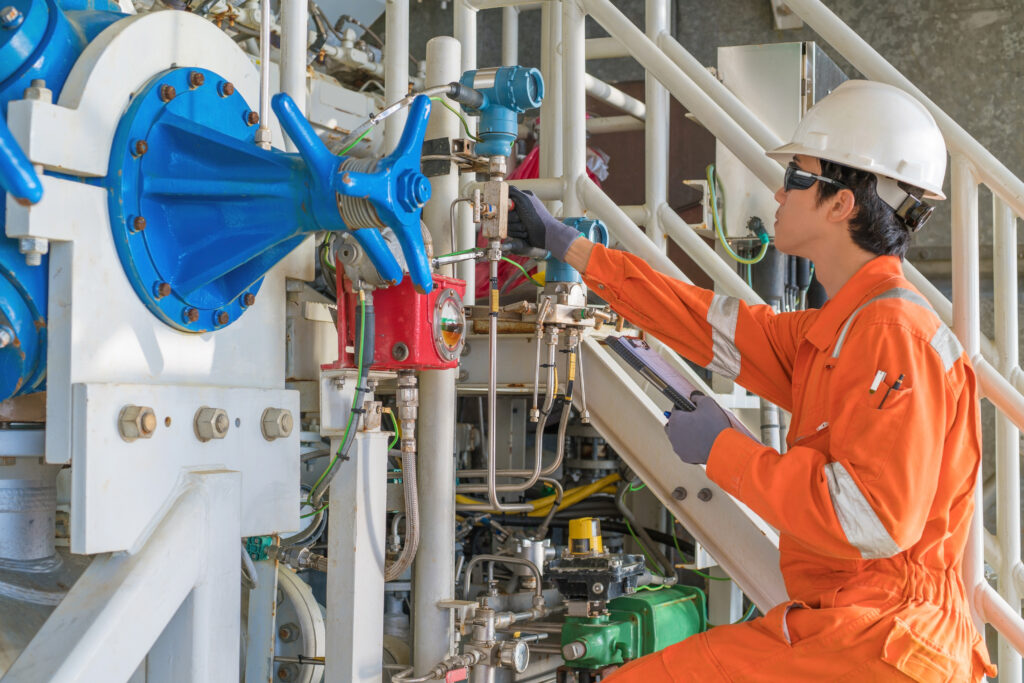Manufacturing and industrial plants will spend upwards of $258B on heavy equipment repair in 2019. Broken down at the unit level, this can mean your company has invested in machines that cost as much as several hundred thousand dollars each, and you have a factory floor full of them. It would make sense then, that you would want to make sure your equipment will be able to operate at full capacity throughout the course of the manufacturer’s suggested lifespan. This means adhering to strict preventive maintenance schedules.
However, your machines are being operated by people under an umbrella of many different variables that can impact machine functionality. It’s important to train your people to be mindful and aware of the signs that your equipment might need an early maintenance cycle or more serious machinery repairs. Below, we’ve outlined seven signs that your equipment might need the attention of a professional mechanic. Learn the signs that you may need heavy equipment repair below.

Heavy Equipment Repair: Tune-up or Full Repair?
Industrial equipment operates for extended periods of time with no downtime in environments that can be full of dust, smoke, and extreme temperatures that can affect their ability to function over time. Because of the noise on the production floor, indications that your equipment might not be functioning properly can be easy to miss, so it is important to train your crew to perform proper safety checks and equipment walks before and after their shifts in order to identify any of these seven signs your equipment might require attention.
Warning Indicators Aren’t Just Pretty Lights
Between dust in the air, safety equipment, and the sheer noise of the plant, visibility might be compromised in some industrial plants, but properly trained personnel will know where to look on a piece of industrial equipment for warning indicators. Integrated into the equipment’s self-diagnostics and often paired with a bright light on the control panel and alarms to catch the operator’s attention, warning indicators are designed to monitor and report if any basic systems become compromised, such as oil pressure or fluid levels. This can be a first level indicator of problems that can help your team get ahead of problems with a piece of machinery before conditions devolve into costly shutdowns.
Leaks a Sign of Compromised Components
Liquids, lubricants, and fluids flow through almost every piece of industrial machinery on your production floor in order to sustain the integrity of vital hydraulic systems and coolant systems and the associated seals, hoses, valves, pistons, and joints. Checking fluid levels is often an item on equipment condition checklists, but depending how complex a machine is, and where these systems that depend on fluids in some form might be, leaks can be hard to catch, and only obvious when fluid puddles accumulate. A proper maintenance package will check these items regularly, but you can’t rely on scheduled services to ensure there are no leaks in the system, as a lack of lubrication or coolant can cause vital components to seize and breakdown.
Airflow and Exhaust
Many pieces of heavy machinery require airflow through the systems in order to properly vent heat and in some cases will also require integration into your facility’s exhaust system. The airflow and exhaust systems can be another origin point for large scale maintenance if filters are not properly maintained and excessive buildup is allowed to accumulate. This can lead to malfunctions in motors, sensor failures, burned out ventilation fans, and eventually lead to the equipment failing.
Reduced Production Efficiency
We’ve talked about how industrial machinery is built by manufacturers with an intended lifespan in place. Much of this lifespan is based on intended productivity levels in order to provide owners with a baseline they can use to calculate return on investment. If your organization has a robust quality control process in place on your manufacturing floor, any noticeable downshift in productivity will be immediately noticed. Early detection of compromised productivity through your QC program can be the difference between an affordable repair call and costly equipment failures that will bring your productivity to zero for an unknown amount of time.
Vibrating Out of Bounds
The internal mechanisms of industrial equipment include hydraulic-driven systems that spin, rotate, and reciprocate. All of these mechanisms together will result in a properly functioning piece of machinery vibrating to some minimal degree. Excessive vibration beyond normal operating standards then, could mean calibration issues, broken bolts or fasteners, fluid leaks, loose drive belts, or other internal issues.
Your Equipment is Stalling
Many industrial machines are driven by engines or motors, making them susceptible to stall-outs due to powertrain issues. These can originate from transmission or drivetrain failures, as well as a breakdown in the clutch or a worn out gear. Other issues can arise if pistons begin to misfire or valves to stick. All of these can result in motors running rough or even stalling out altogether, and should be immediately apparent to your crew who are properly trained and familiar with the equipment to which they’ve been assigned.
Sounds Like Trouble
A catch-all final point, there are certain sounds healthy equipment simply does not make in the course of operation. Gears grinding, surfaces scraping together, belts screaming, the hiss of escaping pressure, these can all be significant indicators of calibration issues and possibly more serious maintenance or repair requirements needing to be addressed. Again, awareness on the part of your operators is the most important preventative maintenance tool you maintain in your operation. Encouraging them to report abnormal operating sounds can catch an issue before it becomes a more expensive equipment repair.

Proper Records Are Your Best Defense Against Downtime
You will notice that we’ve repeatedly referred to the attention and diligence of your workers as your first defense when it comes to equipment breakdown. Teaching your employees from the ground up the importance of equipment logs kept by operators and communicating any concerns at all to their superiors is the best thing you can do in your efforts to properly maintain your equipment. From there, you must impart in your supervisory teams the importance of reviewing logs and keeping an open dialogue with equipment users. This will create a sense of ownership in your supervisory team as well as the impression in your employees that safety and equipment maintenance is a priority in your operation.
Importance of Qualified Heavy Equipment Repair Vendors
Partnering with a reputable and licensed equipment maintenance services provider can mean the difference between minimal downtime and constant expensive equipment failures. The Equipment Hub’s team of professionals helps manufacturing and industrial facilities throughout the country keep their machinery in top running form. Educating operators on how to recognize when machinery isn’t operating properly combined with an effective maintenance program will keep your plant turning a profit throughout the lifespan of your equipment. Contact us today to learn more about our equipment sales, maintenance programs, and asset management solutions.
Sign Up for Our Newsletter
Sign up for our newsletter using the form below to get company insights and updates directly in your inbox!




